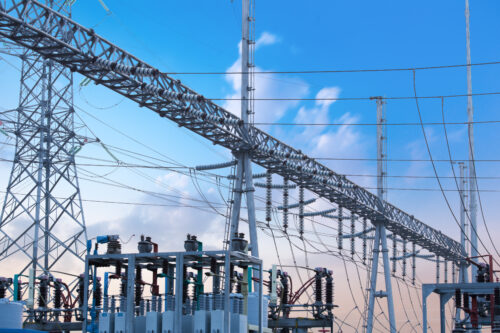
In the U.S., we rely heavily on substations as they serve for the production, conversion, transformation, and distribution of energy. Substations convert high-voltage electricity from a power plant or transmission line into lower-voltage distributions that can be dispersed to homes, businesses, and other users. Electrical substations are crucial for reliable and efficient power allocation to end-users. Unfortunately, an attack on a substation can have significant and immediate consequences as they are integral to our electrical grid. Power outages can disrupt our critical infrastructures, seizing essential services we rely on daily. In recent years, substations have increasingly been targeted. As such, those responsible for managing substations must take these heightened threats seriously by increasing their security measures. To ensure the protection of an electrical substation, contact Port Security Services to learn how our Security Experts can help you today.
What is a substation?
A substation is a facility that converts electricity into different voltages and transmits it throughout the country to provide power. It operates at high voltages and comprises various equipment, including transformers, switchgear, control systems, protective relays, busbars, and other components that help control and distribute electrical power. Ultimately, these facilities protect against power outages by regulating distribution. Substations are often categorized as follows:
- Step-up stations: This facility serves as a hub for receiving electrical power from power plants and boosting its voltage for long-distance transmission.
- Transmission substations: This facility is a hub for receiving high-voltage electricity from a transmission line. High-voltage electricity is reduced for distribution to sub-transmission lines or a distribution substation.
- Distribution substations: This facility is a hub for receiving the lower-voltage electricity that has been reduced from transmission substations and further reduces the voltage for distribution to homes and businesses.
Why do substations require additional security measures?
Sadly, power grids have become a target for attacks as criminals seek to steal valuable equipment and disrupt the power supply. Many people underestimate the vulnerability of electricity substations and the importance of safeguarding them from attacks to ensure they can function as intended without disruption. It’s crucial to take the necessary measures to protect Americans from foreign and domestic threats, as even a temporary loss of power can have devastating effects, hampering essential services such as hospitals and water systems. For example, medical facilities require power to operate vital equipment. Without power, lives are endangered. Substations require highly-trained security guards to patrol the premises to deter and respond to potential threats.
As you can see, substations facing increasing attacks yearly require additional security measures to ensure electricity safety and efficient distribution. Contact Port Security Services today to discuss your needs and learn how our security experts can assist you in formulating a security strategy that best serves those needs.